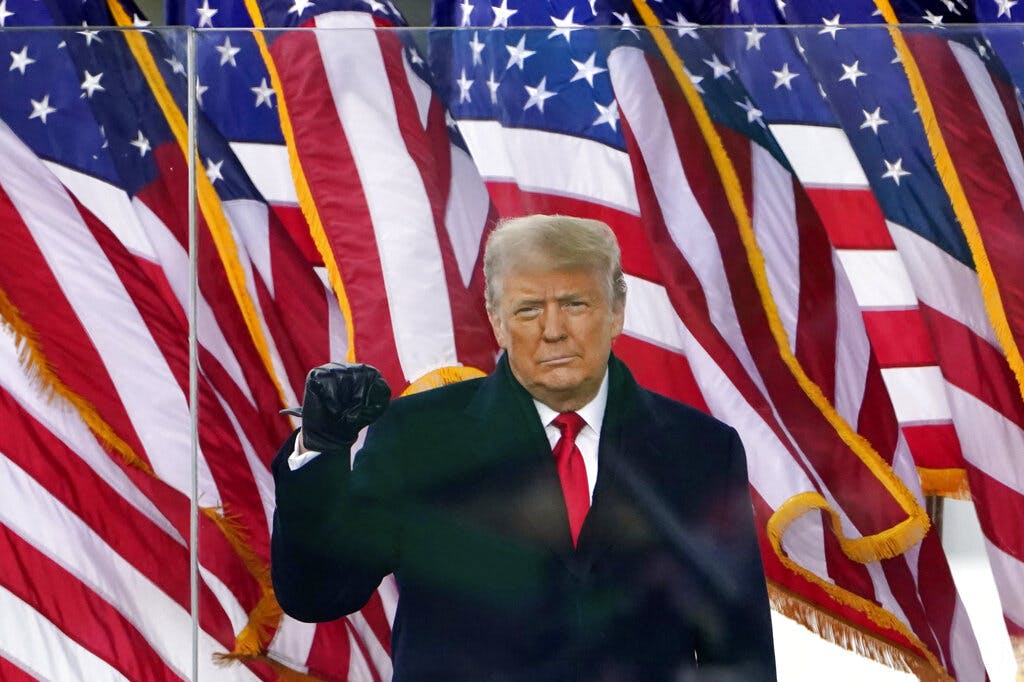Jack Smith Faces More Delays in Quest To Try Trump, as Supreme Court Mystery Deepens Over 45th President’s Immunity
The high court signals, via its website, that a decision could come as soon as Wednesday, or as late as July.

The Supreme Court’s announcement that it will extend its term into July only deepens the mystery surrounding the delay in sharing its much-anticipated ruling on whether President Trump is entitled to “absolute immunity” from prosecution by Special Counsel Jack Smith.
The high court updated its website on Monday to disclose that it will issue opinions on Wednesday, Thursday, and Friday of this week. The justices also indicated that their schedule of announcements could go into July, an unusual occurrence.
While the high court’s calendar for July is not populated, Supreme Court tradition telegraphs that the justices will be working during at least the beginning of summer’s second month. That’s because Chief Justice Roberts usually announces the last day of term from the bench. Monday is July 1.
The Nine are expected to offer rulings on about a dozen cases, several of them related to criminal prosecutions associated with the events of January 6, 2021. None is more eagerly anticipated than the Supreme Court’s decision in Trump v. United States. Mr. Smith’s January 6 prosecution of Trump is frozen pending a ruling on whether the 45th president is owed immunity.
The trial judge, Tanya Chutkan, and the United States Court of Appeals for the District of Columbia Circuit both ruled that former presidents are not entitled to immunity for criminal prosecution for acts they committed while in office. Trump contends that immunity attaches to all official presidential acts, a category he urges the justices to define generously. Mr. Smith maintains that is a recipe for a lawless chief executive.
The case was argued over the course of more than three hours on April 25. The justices appeared convinced that immunity should not extend to private acts, but worried that a meager umbrella of protection for official ones could paralyze a president with fear and lead to a baleful pattern of post-presidency prosecutions. The government sought to reassure the justices that the criminal law possesses enough safeguards to preclude that possibility.
Mr. Smith first asked the Supreme Court to rule on the immunity issue in December, before the D.C. Circuit handed down its decision. The special counsel cited a “compelling” public interest in an accelerated decision. The high court declined to take up the case at that juncture, paving the way for the circuit court to find that Trump’s position would amount to a president’s “unbounded authority to commit crimes.”
In February, the case came back up to the Supreme Court when Trump appealed that unanimous ruling, This time, Mr. Smith urged the justices not to hear arguments on immunity, and to leave the D.C. Circuit’s ruling undisturbed. The special counsel wrote then that Trump’s “alleged criminal scheme to overturn an election and thwart the peaceful transfer of power to his successor should be the last place to recognize a novel form of absolute immunity.”
At least four justices, though, agreed with Trump’s petition for review, and granted the case certiorari. Yet nearly two months to the day after oral arguments, the high court has gone silent, meaning that Mr. Smith’s all-fired rush for a trial before Judge Chutkan has been frustrated as spring turns to summer. Should Trump retake the White House in January, any federal case against him is likely to fall by the wayside either through the firing of Mr. Smith or via a self-pardon, a possibility raised during oral arguments.
Judge Chutkan has told both Trump and Mr. Smith that however the Supreme Court rules, she will give the two sides sufficient time to prepare for the resumption of trial. One possibility is that the justices could remand the case back to her court for determinations of which acts in the government’s indictment are “official” — and therefore deserving of immunity. The rest would be classified as “private,” and fair game for the special counsel.
Such hearings would likely take months, further pushing the possibility of a verdict past Election Day. The Supreme Court is also expected to rule in Fischer v. United States on whether obstruction charges that originate in laws intended to punish financial fraud were validly used against more than 300 January 6 defendants, all of whom are charged with other crimes.
Mr. Smith, who in his January 6 indictment charged Trump twice with this species of obstruction, argues that even if the Supreme Court dismisses them against hundreds, they should be left untouched with respect to the 45th president. That, too, is a contention that will likely be litigated extensively.
Whenever the high court rules, the special counsel is likely in for a long summer of waiting. He could also be dreading an unusual outcome — that the Supreme Court could demur from deciding the case now altogether, and reschedule it for further hearings or deliberations in the fall.

